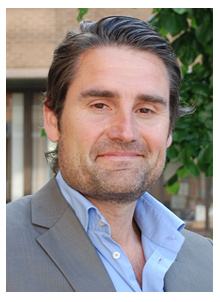End these NEET stereotypes
Wed, 08 Feb 2012 09:10:00 GMT
University researcher tells a major conference that a policy change is needed

SPEAKING at a major national conference, a University of Huddersfield expert has urged policy makers, educationalists and industrialists not to write off young people who are out of work and have dropped out of education. He also argues that training schemes should be more responsive to the needs and abilities of individual youngsters.
Some 16-24-year-olds, who are dubbed NEETS – i.e. not in employment, education and training – are de-motivated and lack ambition. But many of them use their time productively and sometimes they did well at school and need stimulating training programmes which reflect their level of ability, according to lecturer Dr Robin Simmons.
“The widespread belief that all NEET young people belong to a ‘lost generation’ is simply not the case,” says Dr Simmons, a Reader in Education at the University of Huddersfield who is principal investigator for a £124,000 project which investigates the lives of NEET young people. “With the right opportunities and different circumstances, many would flourish in work and education,” he adds. “However, official discourse often problematises this very varied category of young people and depicts them as inherently problematic.”
The project, funded by the Leverhulme Trust, has already led to the publication of research findings in leading academic journals, and Dr Simmons was invited to provide a keynote presentation to open the 6th Annual NEET Conference, which took place in Birmingham on 7 February. The audience included civil servants, academics, head teachers, representatives from private industry and specialists working with unemployed young people.
Dr Simmons’s talk was titled ‘The lived experience of NEET young people: Findings from an ethnographic study in the North of England’. One of the themes he developed is that NEETS do not belong to a single stereotype.
“Some young people do become increasingly de-motivated, isolated and less likely to engage the longer they are out of education and employment.
“But others use the time much more productively, even where they are not formally involved in education or training. For example, they might be doing voluntary work, or supporting friends and relatives, maybe in difficult circumstances. Or they might have creative hobbies,” says Dr Simmons.
He is midway through his three-year research project, conducted alongside University of Huddersfield colleagues Dr Ron Thompson and Dr Lisa Russell.
When he spoke to the Birmingham conference, Dr Simmons aimed to dispel some of the preconceptions surrounding the issue of NEET.
“The situation is problematic obviously, especially in the present economic climate. But what we are finding is that some of these young people have much more potential than is often perceived.”
One issue that Dr Simmons hopes policymakers will address is that even when NEET young people do well at school, often scoring good GCSEs, they are often pushed on to low-level employment training programmes that do not reflect their ability and intelligence.
“The varied nature of these young people means they need differentiated training. I am not saying that some of the very basic stuff is unnecessary, but because NEET young people are so varied, many of them do need more advanced courses that will stretch them, interest them and provide them with meaningful skills and knowledge.”







